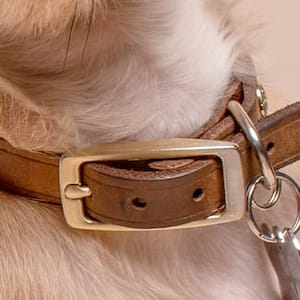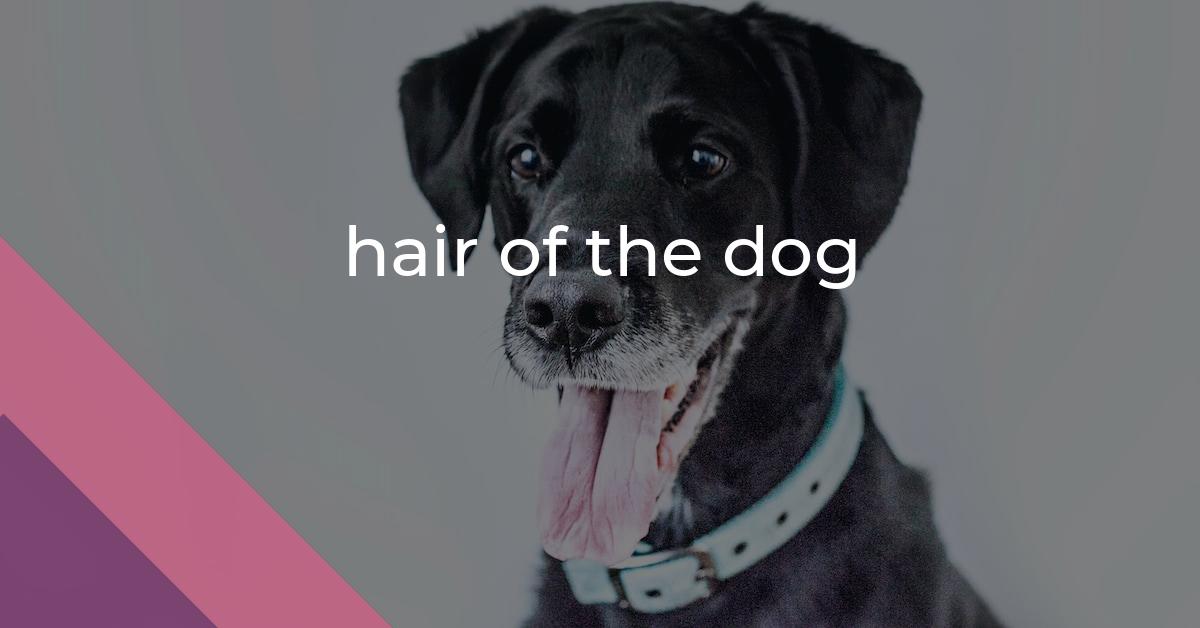hair of the dog: Idiom Meaning and Origin
What does ‘hair of the dog’ mean?
The idiom "hair of the dog" refers to consuming a small amount of alcohol to relieve a hangover, based on the belief that a small amount of what caused the hangover can help alleviate the symptoms.

Idiom Explorer
The idiom "let one's hair down" means to relax or be less formal or restrained, often in a social setting.
The idiom "knock a dog off a gut wagon" means to disrupt or disturb a situation or someone's plans in a forceful or sudden manner. It implies causing chaos or creating a commotion that throws things into disarray.
The idiom *hold one's liquor* means to be able to consume alcohol in large quantities without becoming drunk or losing control.
The idiom "hold one's drink" means to have the ability to consume alcohol without the negative effects of becoming drunk or losing control. It implies someone's tolerance for alcohol and is often used to describe someone who can handle a large amount of alcohol without getting intoxicated.
The idiom "hold one's alcohol" means to be able to drink without becoming intoxicated or showing the effects of alcohol excessively. It implies having a high tolerance for alcohol.
The idiom "help a lame dog over a stile" means to assist someone who is in need or disadvantaged, even if the task is small or seemingly unimportant.
The idiom "have one's ears lowered" means to have a haircut or to get one's hair trimmed. It is a euphemistic way of referring to getting a haircut, particularly one that involves cutting the hair above the ears.
The idiom "have a jag on" means to be drunk or intoxicated. It is often used to describe someone who has consumed excessive amounts of alcohol.
Unveiling the Origin
The idiom "hair of the dog" is a well-known phrase in American English that refers to the act of consuming alcohol as a way to cure a hangover. It suggests that the best way to alleviate the symptoms caused by excessive drinking is to have a small amount of the same alcoholic beverage that led to the hangover in the first place.
There are a few theories about the origin of this idiom. One theory proposes that it comes from an ancient belief that the hair of a dog bite could be placed on the wound as a cure. This idea of using a small amount of the cause of an ailment as its remedy may have influenced the meaning of the idiom.
Another theory suggests that the idiom derives from an old saying that equates the pain caused by a hangover with being bitten by a rabid dog. It was believed that consuming a small amount of the same alcoholic drink responsible for the hangover would help alleviate the discomfort, similar to placing the hair of the dog that bit you on the wound for relief.
The idiom "hair of the dog" gained popularity in the United States by the mid-20th century, and it is still commonly used today. Its meaning has remained unchanged, focusing solely on the remedy for a hangover. The idiom is not typically used in other contexts or to describe any other kind of situation.
Now, let's explore how the idiom "hair of the dog" is related to a few other idioms: "hit the bottle," "dog that caught the car," and "a little of something goes a long way."
The idiom "hit the bottle" is often used to describe someone who consumes alcohol excessively. It suggests that the person turns to the bottle as a coping mechanism or an escape from reality. In a way, this idiom reflects the behavior that can lead to the need for the "hair of the dog" remedy. When someone "hits the bottle" too hard and wakes up with a hangover, they may feel compelled to turn to the same bottle again to find relief.
Now, let's turn our attention to the idiom "dog that caught the car." This expression is used to describe someone who achieves a goal or attains something they desired, only to realize they are unsure of what to do next. It suggests a sense of accomplishment mixed with confusion or uncertainty. In a similar vein, someone who chooses to have "hair of the dog" as a hangover remedy may find themselves in a similar situation. They may temporarily alleviate their discomfort, but they may also be unsure of what their next steps should be in terms of their drinking habits or overall well-being.
Lastly, let's discuss the idiom "a little of something goes a long way." This phrase is often used to emphasize the impact or effectiveness of a small amount of something. In the context of "hair of the dog," this idiom can be applied to the belief that consuming a small amount of the same alcoholic drink can go a long way in relieving the symptoms of a hangover. It suggests that even a small dose of the familiar alcoholic beverage can have a significant impact on the person's well-being and help them feel better.
The idiom "hair of the dog" has a fixed meaning in American English, specifically referring to the consumption of alcohol as a remedy for a hangover. Its origins are uncertain, but theories suggest it may have been influenced by ancient beliefs or old sayings. This idiom is related to other idioms such as "hit the bottle," "dog that caught the car," and "a little of something goes a long way." Each of these idioms provides a different perspective on the concept of using alcohol to cope with or alleviate certain situations. Despite its specific meaning, "hair of the dog" remains a well-known and frequently used phrase in American English.
Example usage
Examples of how the idiom "hair of the dog" can be used in a sentence:
- After a night of heavy drinking, he had a "hair of the dog" and felt better.
- She woke up with a terrible hangover and decided to have a "hair of the dog" to help ease the pain.
- Instead of starting the day with a strong coffee, he preferred a "hair of the dog" cocktail to wake himself up.
More "Remedy" idioms
We missed the mark - nothing found.



